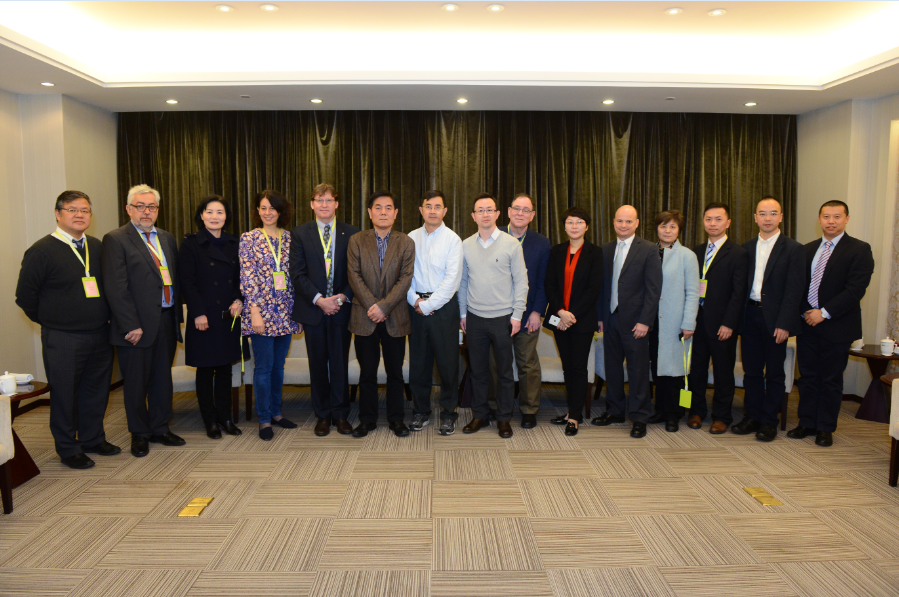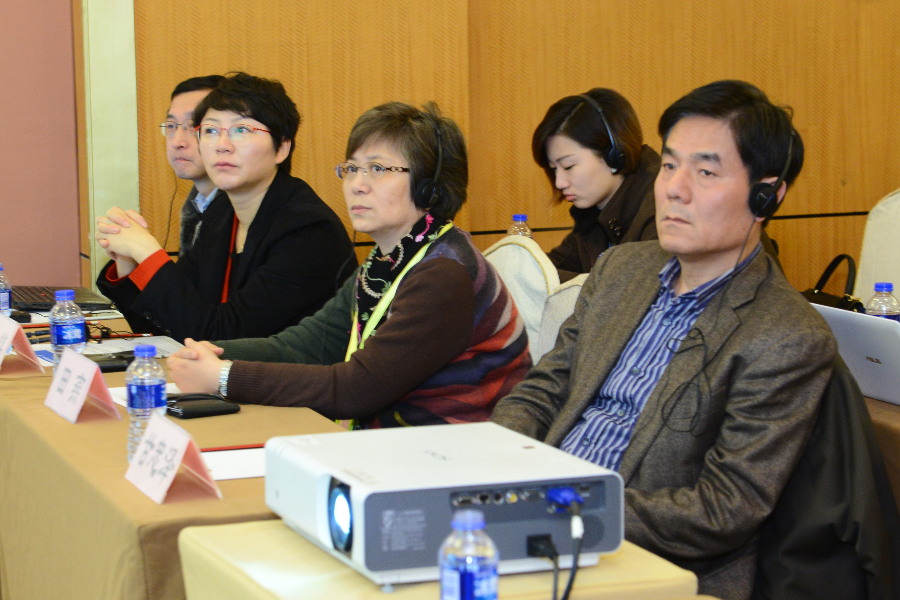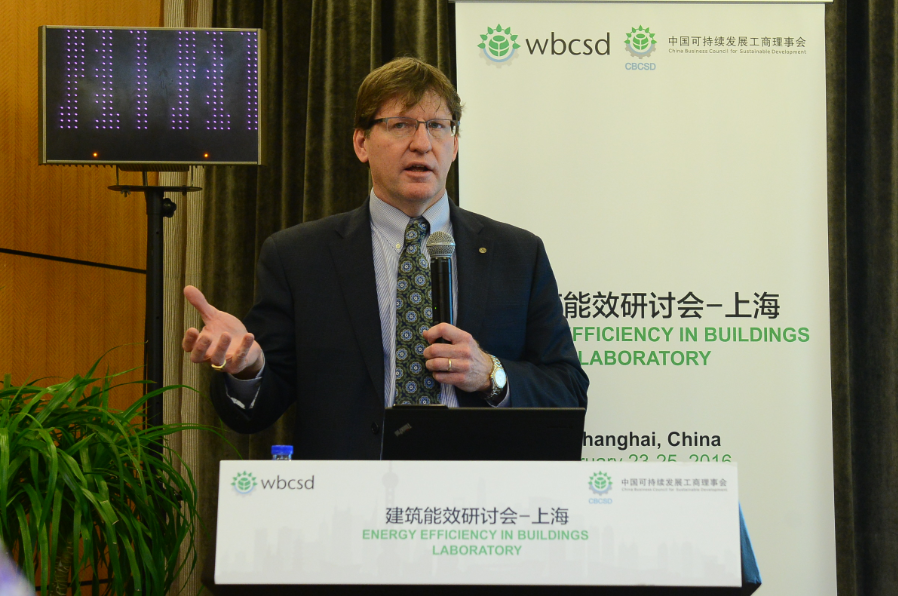
English | 中文

Shanghai EEB Lab delivers an action plan to boost energy efficiency in buildings
source: date:2016-03-10 11:31:26
To facilitate the development and implementation of a long-term strategy for energy efficiency in buildings in Shanghai, the World Business Council for Sustainable Development (WBCSD) and the China Business Council for Sustainable Development (CBCSD) held an Energy Efficiency in Buildings Laboratory (EEB Lab) on Feb. 23 - 25 in Shanghai.
Peng Xu, professor at the College of Mechanical Engineering, Tongji University and author of a market study to prepare the EEB Lab, indicated that Shanghai has a vibrant market for new energy efficient buildings. Peng Xu pointed out that challenges remain in addressing energy efficiency in existing buildings and retrofitting, particularly during periods of slow new building growth. There are existing retrofitting technical solutions for energy efficiency through passive and active measures, yet difficulties are mostly associated with the non-technical aspects ?which isthe focus of the EEB Lab.
Three days to discuss market barriers and recommendations for action

During the three-day seminar, 50 experts on energy efficiency studied 15 business cases and considered four themes for improving the Shanghai EEB market: boosting regional awareness on energy efficiency; bolstering workforce capacity and capability on energy efficiency; investing and financing strategies; and making policy and regulations more transparent and effective. Roundtable discussions were organized to draft the action plan ingredients to overcome market barriers. On the final day of the EEB Lab, a public plenary event was held with more than 100 participants from the regional market. Gan Zhongze, chairman of Shanghai Green Building Council, delivered the opening speech,and presented a positive evaluation of the conference and expressed his support for the EEB Lab. The event was also attended by officials from the Shanghai Municipal Commission of Commerce and Shanghai Hongkou District Commission of Commerce.

William Sisson, senior director of Sustainability for United Technologies Research Center, Inc. and co-chair of the WBCSD’s Energy Efficiency in Buildings Project, defined the EEB Lab concept as a multi-day process aimed at engaging a cross section of the region’s building stakeholders. Discussions focuson understanding the key barriers to energy efficiency in the marketplace and organizing a recommendation based action plan to address them.
Sisson highlighted the innovative approach of the EEB Lab to consolidate local value chains by collaborating with experts and representatives from both private and public sectors to jointly address identifiedchallenges and seek solutions.
"Through the Shanghai EEB Lab, we aim to create an open environment for stakeholders and experts to share best practices, voice their views, unveil the regions’ latest developments and ideas, and ultimately reach consensus on cooperation to address the challenges in energy efficiency in buildings under a unified plan," he explained.
Chinese authorities currently focus on energy efficiency in urban development
According to the Ministry of Housing and Urban-Rural Development, buildings represent 28 percent of all energy consumption in China. This has led Chinese authorities to reinforce their guidelines on energy consumption in the design and construction of buildings, as indicated in a publication issued on Feb. 21st. These guidelines also signal that China will pay greater attention to fostering "green" transformation and improving energy efficiency in buildings in urban development while implementing its 13th Five-Year Plan (2016-2020). The 13th Five-Year Plan states that energy-saving initiatives for buildings should save 116 million tons of standard coal equivalent by the end of 2020.
The EEB platform will implement the recommended actions during the EEB Lab
The outcomes of the EEB Lab will be consolidated into a detailed action plan. Implementation of the plan will begin in 2016 through the EEB platform Shanghai, which willbe coordinated by the Green Building Professional Partnership. Several businesses have already signed up, expressing their interest in the activities following the workshop. The EEB platform is open to any interested organizations motivated to take action in Shanghai to boost the market for energy efficiency in buildings.
More information
The Shanghai EEB Lab is part of the 10 pilot private sector-led engagements carried out by the WBCSD at a global level. Visit http://www.wbcsd.org/buildings.aspx for details.
The Shanghai EEB Lab was co-organized by the WBCSD and China BCSD with United Technologies and Arcadis serving as company leads for China.
Contact for the EEB platform: Joan Zhou, GBPP joan.zhou@gbppchina.com
GoldenBee CSR Consulting provided media support for the EEB Lab.